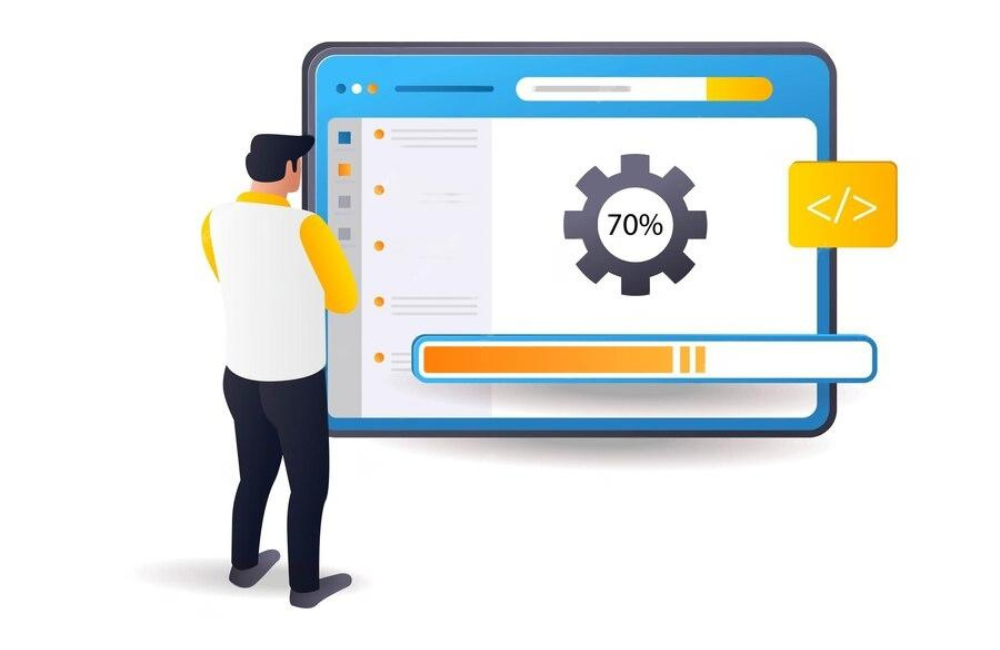In this digital era, every second counts. Whether it’s an online store bracing for a holiday shopping rush or a social platform juggling millions of daily interactions, performance can make or break the user experience. But achieving seamless speed isn’t just about better hardware or flashy designs-it often comes down to how well your app handles and processes information.
Let’s dive into why streamlining how your app works behind the scenes is crucial and how it can transform a slow platform into one that users love.
What Does It Mean to Work Smarter?
At its core, efficiency in web applications is about handling information intelligently-how it’s stored, processed, and shared. Think of it like preparing for a road trip. Packing only the essentials ensures a smoother journey and a faster arrival. Similarly, for an app, trimming down unnecessary baggage makes it lighter, quicker, and easier to manage.
When you reduce redundancy, improve storage strategies, and share only what’s necessary, everything runs smoother. The result? Faster load times, better scalability, and a more satisfying experience for users.
Why Is This Important?
Speed is a major factor in retaining users. A one-second delay might not seem like much, but research shows it can lead to significant drops in engagement and conversions. It’s not just about speed, though. Smarter processes also improve scalability, reduce operating costs, and even contribute to sustainability by lowering energy use.
Here’s a breakdown of the key benefits:
- Scalability: Smooth performance even when traffic surges.
- Cost Reduction: Smaller and more efficient processes cut down on server and bandwidth expenses.
- Environmental Impact: A lighter digital footprint uses less energy.
- User Experience: Faster responses mean happier users who are more likely to stick around.
Managing APIs and File Sizes
Modern apps often use APIs to fetch information or perform actions. However, many of these APIs deliver more data than necessary. Trimming these responses to include only the essentials not only saves bandwidth but also improves response times.
This is especially important for mobile users who often rely on slower networks. By limiting unnecessary information in responses, apps can deliver a faster and smoother experience on all devices.
A key part of making API communication more efficient involves streamlining data formats. For instance, JSON is a lightweight format widely used for exchanging information between servers and apps. However, even JSON files can grow unnecessarily large due to extra spaces, line breaks, or unused elements. This is where tools like minifiers become incredibly useful.
Using a JSON minifier removes the unnecessary bulk, reducing the file size without altering its functionality. To know more about how JSON minifiers Enhance Performance In Web Development, head over to the blog. By making these files lighter, apps can process requests and responses faster, improving overall responsiveness.
Real-Life Scenarios Where Efficiency Shines
Scaling Up for Peak Demand
Imagine an online store preparing for a major sale. Without proper preparation, the app might buckle under the traffic surge, causing slow load times or crashes. Streamlining processes-such as reducing file sizes, optimizing database queries, and improving how information flows-ensures the app runs smoothly even during peak hours.
Mobile-First Experiences
Mobile users often have slower connections, making performance even more critical. An app that’s designed to load quickly, even on limited bandwidth, can keep users engaged while reducing bounce rates.
Reaching a Global Audience
For apps serving users across the globe, latency can be a challenge. By prioritizing the most important elements and minimizing unnecessary processes, you ensure that users everywhere enjoy a seamless experience.
Practical Steps for a Faster App
If you’re ready to refine your app’s performance, here are some simple yet effective steps to consider:
- Audit Your Processes
Start by examining what your app handles daily. Look for unnecessary elements or inefficient methods that could be improved. - Compress Files
Use tools like Gzip or TinyPNG to shrink image and video sizes without reducing quality. For JSON files, try minifiers to make them leaner. - Clean Up APIs
Review API calls and remove any extra data that isn’t actively used by the app. This keeps communication lean and efficient. - Organize Your Storage
Keep your database well-structured. Remove duplicates, use indexing, and optimize queries to make retrieval faster. - Introduce Lazy Loading
For apps with lots of visuals, load only what’s immediately visible to the user. This speeds up initial load times significantly.
Looking Ahead
Improving efficiency isn’t a one-time task. As your app evolves, so will its needs. Regularly reviewing how it handles information ensures it stays fast, scalable, and cost-effective. Beyond technical improvements, these efforts also enhance the experience for users, which can set your app apart in a crowded market.
Building something that’s quick, reliable, and enjoyable doesn’t just benefit your app-it benefits your users, too. In the end, that’s what makes all the effort worthwhile.
The post Why Efficiency Matters in Building High-Performance Web Applications appeared first on Datafloq.



